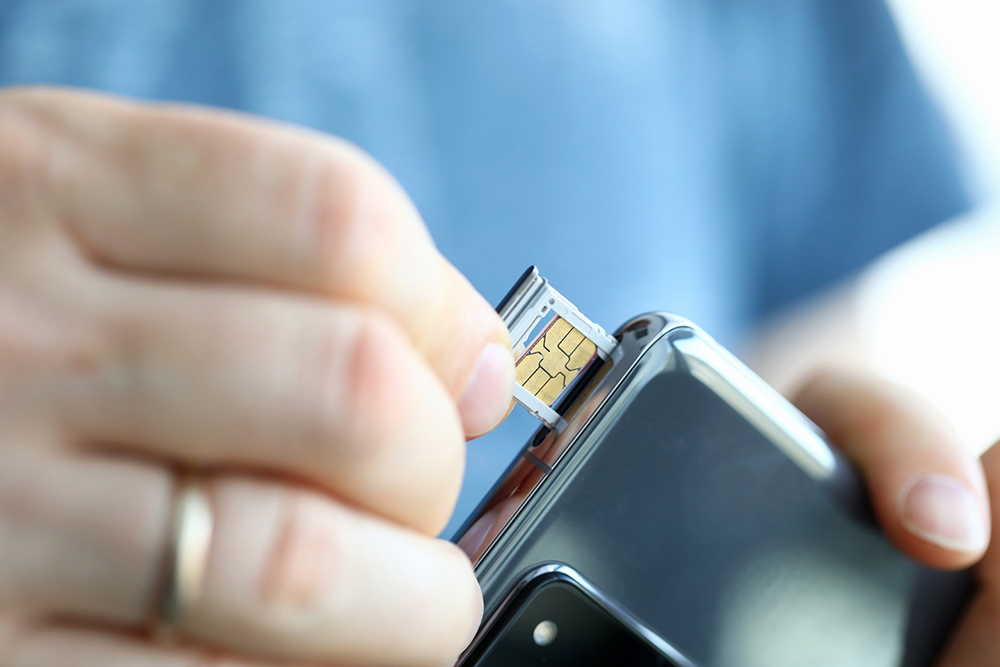Key Things to Know When Getting a SIM Card
Inserting a SIM card into a mobile phone is necessary to unlock its full potential. Without it, one cannot make calls, send text messages, or even access the internet to stream videos or browse the web. While many companies in the country offer SIM cards, they have different plans and prices. That’s why individuals should research well before choosing a provider and getting a SIM card for their cell phones.

SIM card plans
People can choose from several plans when getting a SIM card. Each option has a different level of flexibility and unique advantages.
- Prepaid plan
A prepaid SIM card is pre-loaded with credit, which one can use to send texts, make calls, or use data. Individuals can top up and add as much credit as they require at any point. A prepaid SIM is typically cheaper. It is ideal for those who do not need extra call minutes or data. - Phone contracts
Here, customers pay a flat rate for calls and texts, a set amount of mobile data (5G/4G LTE), and a specific number of international minutes. A phone contract usually has a fixed 24-month or 12-month term, which means the buyer is locked in with the provider throughout this time. The cost of the plan is paid monthly via direct debit. Phone contracts are ideal for people who want a plan for one or two years and do not intend to switch carriers. - Postpaid plan
This is a typical fusion of phone contracts and prepaid options. A postpaid plan gives users a flat rate for calls and texts and an amount of data of their choice. At the same time, they enjoy the flexibility that prepaid SIM cards provide, as they can exit the plan at the end of each month. One must remember to end their plan if it is no longer needed, as failing to do so will result in monthly debits, even without usage.
When signing up with a provider, one may have the option to get a physical SIM card or an eSIM. Those who opt for an eSIM or embedded SIM should check with their carrier or smartphone manufacturer for the steps to activate it on their device. Some carriers also sell radio SIM cards, which can be inserted into a radio to help it connect to a mobile network.
Places to buy SIM cards
One can buy this card from stores or even order it online for free.
- Mobile carrier stores
One can visit retail stores of major mobile operators, usually located in large shopping centers, tourist areas, and high streets. A mobile carrier store may offer several types of SIM cards with varying data and call packages. - Order online
Individuals can also order a SIM card online from a provider by visiting their website. Shopping online reduces the hassle of visiting stores to determine the best SIM for one’s needs. - Electronics stores
Some popular electronics stores sell SIM cards, so one can visit them to check the options available from different providers. Such stores usually have several options, making it possible to compare and make an informed choice. - Convenience stores
Various convenience stores and supermarkets throughout the country stock up on prepaid SIM cards. These are ideal purchase points for travelers who need immediate connectivity but have no time to look for a dedicated mobile store. - Airports
Those visiting the country for the first time can look for a SIM card at the airport. Arrival halls usually have small shops and kiosks that sell these cards, making it easy to pick one up right after landing.
Cost
The cost of a SIM card differs based on various factors, the most important being the carrier one picks. Factors like the available minutes, data, and texts will also increase or decrease the plan’s cost. Further, the rate may differ based on whether one buys a prepaid or postpaid plan or a phone contract. A prepaid plan with limited data starts at around 10 EUR. The price may go all the way up to 50 EUR for a plan with more data, calls, and international minutes.
Tips to get the best deal
Since the prices for a SIM card vary, one should take time to compare the options before choosing the most suitable one. Doing so can help one get the best deal on their purchase.
- Determine needs
Users should first determine their requirements. For instance, while a plan may offer unlimited calling minutes, one may not require it. Getting another plan with limited minutes will help save in this case. - Research
It is important to research well before a purchase. This step involves checking each carrier’s plans and features, such as the minutes, data, and text they provide. Doing so will help buy the ideal SIM plan. - Negotiate
One can speak to a customer service representative to ensure they get the best price on a SIM card purchase. Users can even look online to determine if a deal is worth the money. - Don’t rush the purchase
While a SIM card provider might offer a very attractive price, one must ensure not to rush into purchasing the plan. Taking time to decide may ensure one gets the best value-for-money SIM card deal.